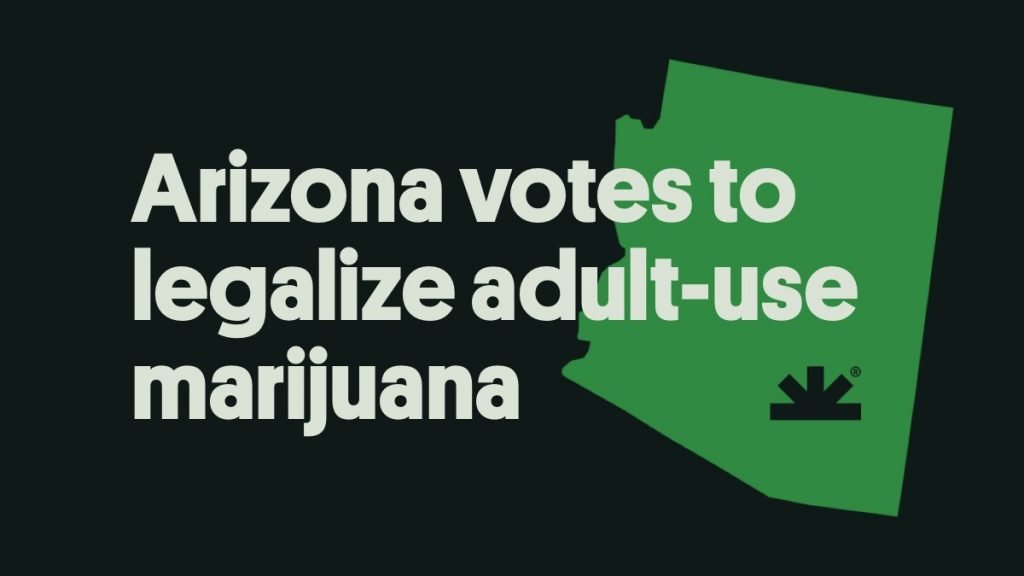How to Start a Cannabis Cultivation Business in 2021

New Jersey, Arizona present big opportunities.
The elections of 2020 brought a wave of cannabis legalization. Voters approved every cannabis-related ballot initiative, opening up new markets in New Jersey, Arizona, Montana, Mississippi, and South Dakota.
Experts project that these markets will gross $2.5 billion annually by 2024. That has investors and would-be license holders asking “how can I start a cannabis business in New Jersey?” Or Arizona, or Montana, for that matter.
In this article, we take a look at what it will take to be successful as a grower or processor in these fledgling markets, and how to navigate their unique dynamics. At Triminator, we’ve watched new markets — such as Massachusetts and Nevada — initiate their recreational programs, so we hope to offer you some good advice as these nascent states develop.
Getting a Cannabis License
Regardless of the market, the first step in starting a cannabis business is securing a license. But several variables must be aligned to do so. Not surprisingly, one of the first components is funding. State regulators want to know that new license holders can execute their plans.
If you’re applying for a license, try to take the perspective of a cannabis regulator. When they give you a license, they’re taking a risk. They’re trusting you to build out their state’s cannabis program safely, and they want you to be a reliable business entity.
Ultimately, they need your performance to justify their choice and make cannabis legalization seem like a good idea rather than a messy one. When you build a strong executive team, document your financials, and carefully demonstrate your plans, you stand a much greater chance of succeeding — regardless of the market you choose.
Starting a Cannabis Business in New Jersey

New Jersey is the most lucrative emerging market of 2020. With its large population and proximity to New York, New Jersey’s recreational sales will grow to $1 billion annually in the next decade. Better still, the Garden State has a hospitable climate for outdoor growing.
There are currently 24 new licenses available in New Jersey. Yet the state’s medical-marijuana program has been mired with legal struggles, and that doesn’t bode well for an easy roll-out of recreational sales. The medical program has only 12 licenses, and 24 additional medical licenses still wrapped up in the courts.
New Jersey’s legislation outlines six classes of licenses:
- Cultivator
- Manufacturer
- Wholesaler
- Retailer
- Distributor
- Delivery service
Because of the market’s size, growers will have ample opportunity in New Jersey, whether they’re cultivating indoors, outdoors, or under glass. Ambitious companies will stack multiple license types for vertically integrated operations. The new licenses will likely be consolidated by just a handful of corporations in the years to come.
Regardless of the license type, applications will be subject to a points-scoring system based on their operating plans, environmental stewardship plans, and safety and security protocols. Minority groups will get priority consideration.New Jersey is not yet accepting applications for new licenses, but stay tuned. The New Jersey Division of Medicinal Marijuana is your place for more information about how to apply.
Getting a Recreational Cannabis License in Arizona

Arizona’s cannabis industry is ripe for expansion, but it may be difficult for those who are new to the industry. Most of the new recreational licenses will go to existing medical marijuana licensees. The state’s high temperatures and large temperature swings are also a hindrance because they curtail outdoor growing and make greenhouse cultivation more energy-intensive.
Companies holding the state’s 120 medical licenses will have first access to recreational licenses. There will be 12 new recreational licenses, as well as 26 new licenses created to support social equity and underserved communities. However, the cities of Chandler, Gilbert, and Mesa have opted out of cannabis legalization and will not permit sales.Legalization will move fast in Arizona, with license applications opening in January and sales beginning as early as March. For those interested in applying, visit the Arizona Department of Health Services licensing portal.
Montana, Mississippi & South Dakota Cannabis Opportunities
Arizona and New Jersey compose the bulk of 2020’s opportunities based on their population size and cannabis-friendly politics. Yet the smaller markets may hold value for entrepreneurs, depending on the municipality and local regulations.
Voters in Mississippi overwhelmingly voted to legalize medical marijuana sales and placed no cap on the number of licenses allowed. However, the Mississippi legislation left retail permitting up to the local jurisdictions. In conservative areas of the state, expect pushback, court battles, and bans on sales.
In Montana, existing medical license holders will have the first opportunity to apply for new recreational licenses. Fortunately for Montanans, license applicants must be state residents, which cuts down on competition from multi-state operators. At its peak, the Montana market is expected to bring in more than $200 million annually.
South Dakota legalized both medical and recreational cannabis this year. While that may seem like a prime opportunity for entrants, South Dakota’s population is small, and it’s anticipated sales volume is only $10 million. Furthermore, cannabis opponents are outspoken and litigious, with legal challenges already filed in protest of the voter-approved initiative.
Cannabis Business Planning
Once you’ve won a license, the true work begins. A license is not a golden ticket, and many new licensees find that becoming cash flow positive takes longer than expected. This is especially true for vertically integrated businesses that must assemble cultivation, processing, and retail facilities simultaneously.
Other new cultivators discover — at the last minute — that they need a distribution network for their harvest, or that there are big, hidden expenses looming in the later stages of the startup. Processing (i.e., trimming, drying, and curing) takes up significant calendar time after harvest and can cause a big bump in payroll before revenue starts.
At Triminator, we help cultivation companies craft processing plans that are right for them. Depending on their goals and production volume, we can tailor trimming solutions that best fit their budget and expansion plans.
For a free consultation about processing technologies, contact a Triminator representative today. Whether you’re applying for a license or ready to take down your first crop, they can help you produce the highest quality crop at the lowest possible cost.
Like what you read?
Get more insider industry knowledge sent right to your inbox
"*" indicates required fields